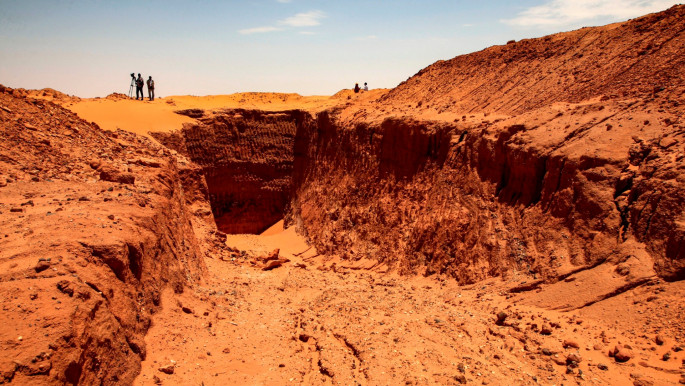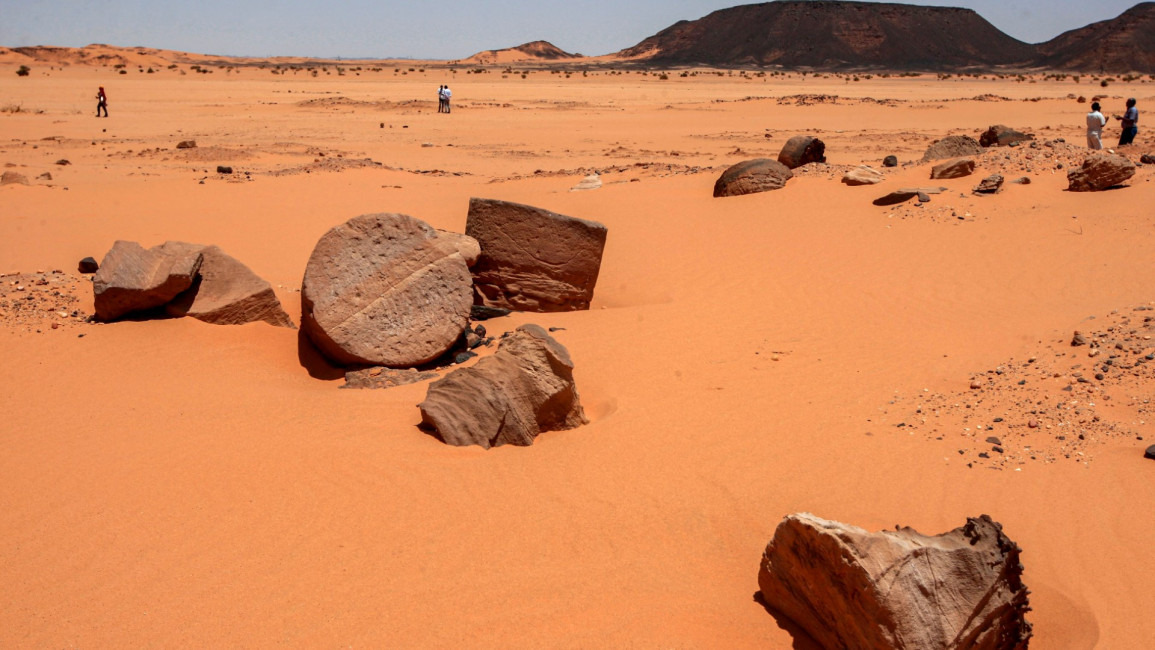Looters destroy 2000-year-old Sudan archaeological site in search for gold
Gold seekers have destroyed a 2,000-year-old historical site deep in the deserts of Sudan, according to officials.
A team of archaeologists discovered the damage when they arrived at the ancient site of Jabal Maragha last month and saw that the site had vanished.
Gold hunters with giant diggers had destroyed almost all sign of the two millenia-old site.
"They had only one goal in digging here - to find gold," said shocked archaeologist Habab Idriss Ahmed, who had painstakingly excavated the historic location in 1999.
"They did something crazy; to save time, they used heavy machinery."
In the baking-hot desert of Bayouda, some 270 kilometres (170 miles) north of the capital Khartoum, the team discovered two mechanical diggers and five men at work.
 |
|
| A vast trench was dug at the site [Getty] |
They had dug a vast trench 17 metres (55 feet) deep, and 20 metres long.
The rust-coloured sand was scarred with tyre tracks, some cut deep into the ground, from the trucks that transported the equipment.
The site, dating from the Meroitic period between 350 BC and 350 AD, was either a small settlement or a checkpoint. Since the diggers came, hardly anything remains.
"They had completely excavated it, because the ground is composed of layers of sandstone and pyrite," said Hatem al-Nour, Sudan's director of antiquities and museums.
"And as this rock is metallic their detector would start ringing. So they thought there was gold."
The archaeologists were accompanied by a police escort, who took the treasure-hunters to a police station but were freed within hours.
"They should have been put in jail and their machines confiscated. There are laws," said Mahmoud Al-Tayeb, a former expert from Sudan's antiquities department.
Instead, the men left without charge and their diggers were released too.
"It is the saddest thing," said Tayeb, who is also a professor of archaeology at the University of Warsaw.
Tayeb believes that the real culprit is the workers' employer, someone who can pull strings and circumvent justice.
Sudan's archaeologists warn that this was not a unique case, but part of a systematic looting of ancient sites.
Read also: Egypt slams rumours of destruction of ancient Islamic cemeteries as 'untrue' despite concerns by experts
At Sai, a 12-kilometre-long river island in the Nile, hundreds of graves have been ransacked and destroyed by looters. Some of them date back to the times of the pharaohs.
Sudan's ancient civilisations built more pyramids than the Egyptians, but many are still unexplored.
Now, in hundreds of remote places ranging from cemeteries to temples, desperate diggers are hunting for anything to improve their daily lives.
Sudan is Africa's third largest producer of gold, after South Africa and Ghana, with commercial mining bringing in $1.22 billion to the government last year.
In the past, people also tried their luck by panning for gold at the city of Omdurman, across the river from Khartoum, where the waters of the White and Blue Niles meet.
Agencies contributed to this report.
Follow us on Facebook, Twitter and Instagram to stay connected



